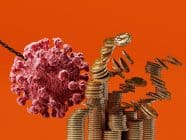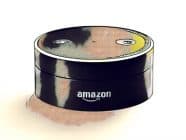As soon as Amazon boss Jeff Bezos announced his acquisition of the Washington Post, people began asking why he had done it. What will the man who said there would be no printed newspapers in 20 years do with one of the most respected titles in the industry?
Two media experts in the U.S. give their thoughts about the deal.
Media analyst Ken Doctor, founder of the website Newsonomics.com and author of the weekly Newsonomics Of column for the Nieman Journalism Lab, was surprised when he first learned about the Bezos deal, but said: “it then fell too neatly into place.”
“We’re seeing a major movement of newspapers from public companies into private hands. We’re seeing a new class of multi-millionaires and billionaires without publishing experience buy into newspapers, as they descend in valuation.” Shortly before Bezos bought the Washington Post, the owner of the Boston baseball team Red Sox, John Henry, purchased the Boston Globe. Billionaire Warren Buffett acquired more than 60 newspapers within a year.
“Given the fact that the Washington Post has been underperforming its peer, and searching for strategy, it’s really not that surprising that the sale happened,” Doctor said. Kaplan, the Washington Post company’s education division, used to subsidize the newspaper, but it has now become unprofitable itself. The Graham family, who owned the Post for eight decades, “lacked a combination of the money and stomach to press on for the next five years of digital transformation”, said Doctor.
“What surprised me even more than the unexpected sale of the Washington Post was the overwhelmingly positive reaction to the prospect of private ownership by Jeff Bezos”, said Scott Maier, professor for journalism at the University of Oregon and member of the EJO network. Even the staff of the Washington Post seems remarkably open to ending the Graham family’s publishing legacy. “To me, this signifies that the news media not only recognize but also embrace a new digital vision for newspapers,” Maier said.
In an interview with the German newspaper Berliner Zeitung at the end of last year Bezos said: “I’m sure there won’t be any printed newspapers anymore in 20 years. Maybe only as luxuries that a few hotels could offer, as an extravagant service for their guests. Printed newspapers won’t be common in 20 years.”
However, media analyst Ken Doctor believes fears that Bezos will focus on digital distribution and close down the printed version of the Washington Post as soon as possible are exaggerated. He does not believe that Bezos wants to lose the earnings from the print business that make up more than 75% of the Post. “If you flip the switch, you lose that revenue”, said Doctor, “Bezos will come to appreciate those economics.”
But Doctor considers the transition from print to digital to be inevitable: “The issue for the next five years is how to straddle, to put together the new bundle of digital and print and transition with advertisers and readers in the more fully digital age.”
Doctor does not believe that in 20 years all print products will be gone, but he regards them as a future niche product. “Tablet reading is replacing paper at a rapid rate. It’s cheaper for publishers and far more ecological”, he said. Doctor points to studies from the consulting company Mequoda, the Pew Research Center and Reynolds Journalism Institute showing that more and more recipients in the U.S. – amongst them long-time print readers – prefer tablets to print. “Add it up and the 7-day newspaper has 5-10 more years of life. The Sunday or weekend paper will last longer”, he predicted.
“I suspect the demise of the printed newspaper will come quicker than that”, said Maier. This is not necessarily a disaster. A digital publishing industry brings all sorts of financial and environmental benefits. “Perhaps more importantly, the digital newspaper provides the opportunity for a truly personalized, interactive and multi-media news and advertising content – a powerfully rich combination that ultimately will save journalism from obscurity,” said Maier.
Maier considers Bezos a digital pioneer: “My guess is that Bezos will lead in a way that not only rescues the Washington Post from a perilous path of financial losses but will lead the way for all news media, just as he already has done in book publishing with Amazon’s Kindle E-Reader.”
Even though the Amazon boss has acquired the Washington Post with his private assets, Doctor suggests that Bezos should look for synergies with his other businesses. In his view Amazon has a major differential advantage to other online shopping suppliers: Amazon’s services, including its 1-click ordering, are “the gold standard of customer experience in the digital world”. This could be transferred to the world of news. Doctor envisions a “Netflix for News”. The U.S.-company ‘Netflix’ is the world’s leading subscription service for watching TV episodes and movies. The Washington Post could enhance its journalistic core business with a news-on- demand platform where articles from different newspapers would be gathered – a place to read, buy, share and be easily informed without heavy lifting. News archives, served up appropriately in groups with current stories would be a promising business idea.
Doctor said Bezos’s first challenge is to create a better mobile experience for the Post. He suggested that Amazon give away Kindle Fires, pre-loaded with the Post, with a trial subscription.
Despite all euphoria about Bezos’ purchase of the Washington Post the change in the U.S. newspaper industry does raise questions about the future of journalism. Maier points out that we don’t yet know if private owners such as Bezos provide the transparency and independence needed for a vital free press. Will mid-sized newspapers be able to retain a niche in a digital world that rewards specialized or large markets – but not necessarily those in between? Will the new digital realm support in-depth journalism, or continue the path of ‘byte-size’ news that’s easy to gather and disperse – a fate that has befallen local U.S. television news?
One thing is certain: the news industry is in the mood for change and change is what it is getting.
This article was translated by the author from the original „Jeff Bezos wird eine Vorreiterrolle einnehmen“
Photo credit: Esther Vargas / Flickr CC
Tags: Amazon, Jeff Bezos, Ken Doctor, media analysts, Media economics, newsconomics, Scott Maier, Washington Post










































